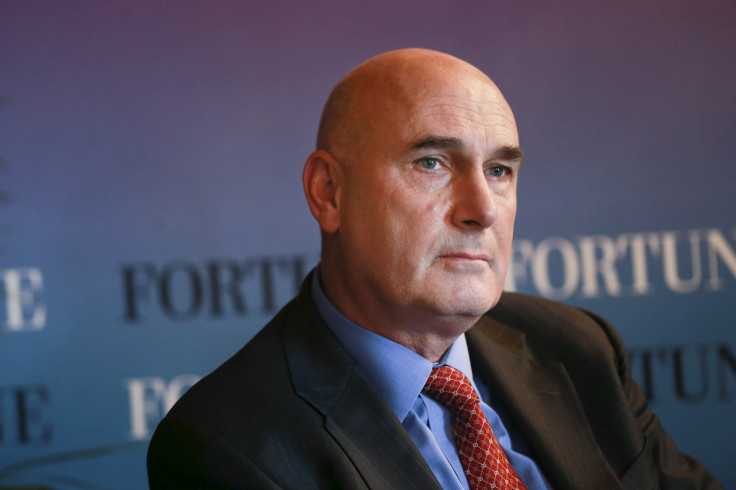Monsanto Boss Could Net $70 Million From A Bayer Takeover

Monsanto boss Hugh Grant could land more than $70 million if the world's largest seed company is taken over by German chemicals giant Bayer AG (BAYGn.DE).
The U.S. firm said it was open to engaging in further negotiations with Bayer after turning down its $62 billion bid as "incomplete and financially inadequate" this week.
That $122-per-share offer would allow CEO and Chairman Grant to walk away with a total package of more than $123 million after a takeover, including from the sale of shares and the exercise of options he already owned, a Reuters analysis of Monsanto filings showed.
But $73.5 million of that represents gains the 58-year-old Scot could make as a result of the Bayer courtship, largely thanks to increases in the value of his stock options.
The gains also reflect the rise in the value of his shareholdings and accelerated payout of bonuses that would occur if there is a takeover, as well as a $14.5 million "golden parachute" severance payment he would receive if he loses his job as a result.
There is no certainty that ongoing negotiations will result in a deal, although Monsanto's board has signaled interest in reaching an accord with Bayer. Grant, who is eligible for retirement, said his company firmly endorsed "the substantial benefits an integrated strategy could provide to growers and broader society" after the bid was snubbed Tuesday.
Even should a deal be struck, it is not certain that Grant would be ousted. But in most takeovers, the CEOs of the targets tend to exit after their companies are sold. The agrochemicals mega-deal between Dow Chemical (DOW.N) and Dupont (DD.N) agreed in December — an unusual case because it was billed as a "merger of equals" of two companies of roughly equal size — will see both CEOs depart.
Grant's exposure to shares and options means he has an incentive to hold out for the highest possible sale price in any deal, which would not only be in the interests of shareholders but also increase the value of his holdings. A $130-per-share bid, for example, would lift his holdings by another $12 million, the Reuters analysis shows.
A spokesman for St Louis-based Monsanto declined to comment on its compensation scheme.
Payday
The company - which makes the world's most widely used herbicide, Roundup - has been wrestling with low crop prices and spending cutbacks by U.S. farmers, which have hit its profits.
Before reports about a potential Bayer bid in early May, Monsanto's shares were trading at around $90. At that price, Grant's share options were worth around $1 million.
At $122-per-share, they are worth over $49 million.
Other top executives would also benefit from a takeover.
Brett Begemann, president and chief operating officer, could walk away with a total of $36.5 million for his shares and in gains on his options, accelerated bonuses and severance, should a deal be done at $122-a-share and his job terminated.
Such an accord would make him about $20 million better off than he was based on the pre-bid share price.
The other three directors whose total pay is disclosed in filings — Chief Financial Officer Pierre Courduroux, Chief Technology Officer Robert Fraley and general counsel David Snively — could walk away with a total of over $56 million in shares, bonuses and severance if a deal goes through.
Any merger of Bayer's agrochemicals operations with Monsanto's would be the second "mega-deal" in the industry in recent months after the creation of DowDuPont, a $130 billion giant.
The departing CEOs of Dow Chemical and DuPont will walk away with a combined $80 million.
Dow' Andrew Liveris will get $52.8 million in cash, stock and other payments, including about $40 million he is already entitled to on his retirement, DowDuPont said in a regulatory filing. DuPont's Edward Breen will get $27.2 million, DowDuPont said.
© Copyright Thomson Reuters 2024. All rights reserved.





















